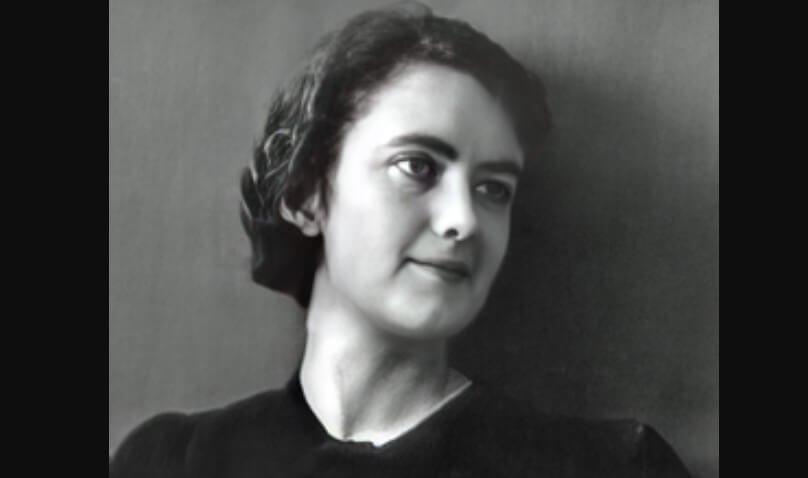Discover the life of Jean Tatlock, an American psychiatrist and member of the Communist Party, known for her forbidden romance with physicist J. Robert Oppenheimer during the Manhattan Project. Learn about their compelling love story, the challenges they faced, and the heartbreaking outcome that led to Jean Tatlock’s untimely death by suicide.

Source: wikipedia.org
Jean Frances Tatlock (21 February 1914 – 4 January 1944) was an American psychiatrist and physician. She was associated with the Communist Party USA and worked as a reporter and writer for the party’s publication, Western Worker. Jean Tatlock is notable for her romantic involvement with J. Robert Oppenheimer, who served as the director of the Manhattan Project’s Los Alamos Laboratory during World War II.
Jean Tatlock was the daughter of John Strong Perry Tatlock, a well-known Old English philologist and expert on Geoffrey Chaucer. She attended Vassar College and later studied at Stanford Medical School, where she pursued her dream of becoming a psychiatrist. During her time as a graduate student at Stanford, she began a relationship with Oppenheimer, who was a physics professor at the University of California, Berkeley at the time. Due to her affiliation with the Communist Party and her involvement with Oppenheimer, she became a subject of FBI surveillance, with her phone being tapped.
Tragically, Jean Tatlock suffered from clinical depression, and on January 4, 1944, she died by suicide.
Biography
Jean Frances Tatlock was born on February 21, 1914, in California, United States. She was the daughter of John Strong Perry Tatlock, a distinguished scholar in Old English philology and literature. Growing up in an intellectually stimulating environment, Jean developed an interest in academic pursuits from an early age.
After completing her education, Jean attended Vassar College, where she likely encountered progressive ideas and became involved in political activism. She graduated from Vassar with a Bachelor’s degree.
She later pursued her medical education at Stanford Medical School, where she studied psychiatry. During her time at Stanford, she became romantically involved with J. Robert Oppenheimer, a brilliant physicist who was a professor at the University of California, Berkeley. Their relationship began in 1936 when Jean was a graduate student, and Oppenheimer was already a respected figure in the scientific community.
Jean Tatlock’s association with the Communist Party USA and her involvement with Oppenheimer brought her under the scrutiny of the FBI. As tensions escalated during World War II, the authorities kept a close watch on individuals they perceived as potential threats to national security.
Tragically, Jean struggled with clinical depression, and this mental health condition weighed heavily on her. On January 4, 1944, she tragically took her own life, leaving behind friends and loved ones devastated by the loss.
Jean Tatlock’s life was marked by her intellectual pursuits, her political involvement with the Communist Party, and her relationship with J. Robert Oppenheimer. Despite her early passing, her story continues to be remembered as part of the complex history of the Manhattan Project and the broader political and social context of the time.
Romance with Oppenheimer
Jean Tatlock’s romantic involvement with J. Robert Oppenheimer, the prominent physicist and director of the Manhattan Project’s Los Alamos Laboratory, is one of the notable aspects of her life story.
Their relationship began in the mid-1930s when Jean was a graduate student at Stanford Medical School, and Oppenheimer was a physics professor at the University of California, Berkeley. The two shared a connection, likely fueled by their shared intellectual interests and progressive ideals.
Oppenheimer was known for his brilliance in theoretical physics and was already making significant contributions to the scientific community. He was also an influential figure in political circles, and his left-leaning views aligned with Jean’s involvement with the Communist Party USA.
Their romance flourished during a time when political tensions were high, and World War II was on the horizon. Jean’s association with the Communist Party and her relationship with Oppenheimer brought her under the surveillance of the FBI, which was keeping a close eye on individuals suspected of communist sympathies.
Despite the challenges posed by their respective political affiliations and Oppenheimer’s demanding career, the two maintained a connection. However, their relationship was not without its difficulties, and Jean’s struggle with clinical depression added additional strain.
Tragically, on January 4, 1944, Jean Tatlock died by suicide. Her passing was a devastating loss for those who knew her, including Oppenheimer.
The romance between Jean Tatlock and J. Robert Oppenheimer is a complex and poignant aspect of their lives, adding human dimensions to the historical narrative of the Manhattan Project and the political climate of the time. Their story has been a subject of interest for historians and biographers seeking to understand the personal lives of individuals who played significant roles in shaping 20th-century history.
In Popular Culture
Jean Tatlock has been portrayed in popular culture by various actresses in different films and TV shows. In the 1980 TV miniseries “Oppenheimer,” she was portrayed by Kate Harper. In the 1989 film “Fat Man and Little Boy,” the role of Jean Tatlock was played by Natasha Richardson. More recently, in the 2023 biopic film “Oppenheimer” directed by Christopher Nolan, Jean Tatlock was portrayed by Florence Pugh.